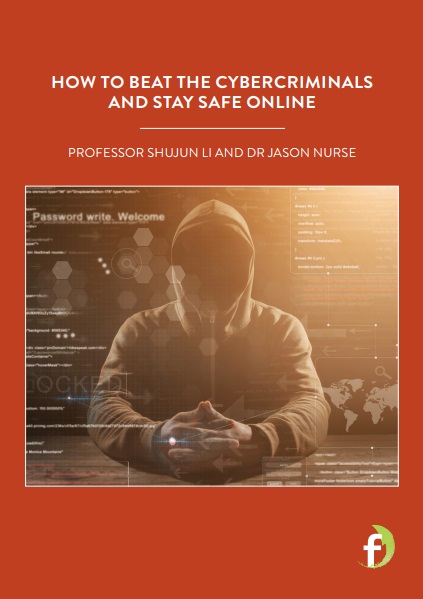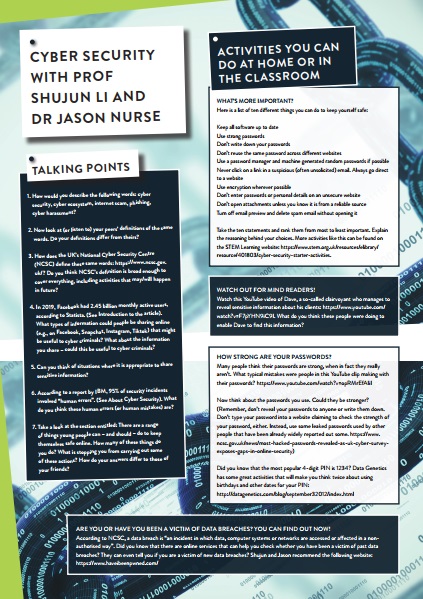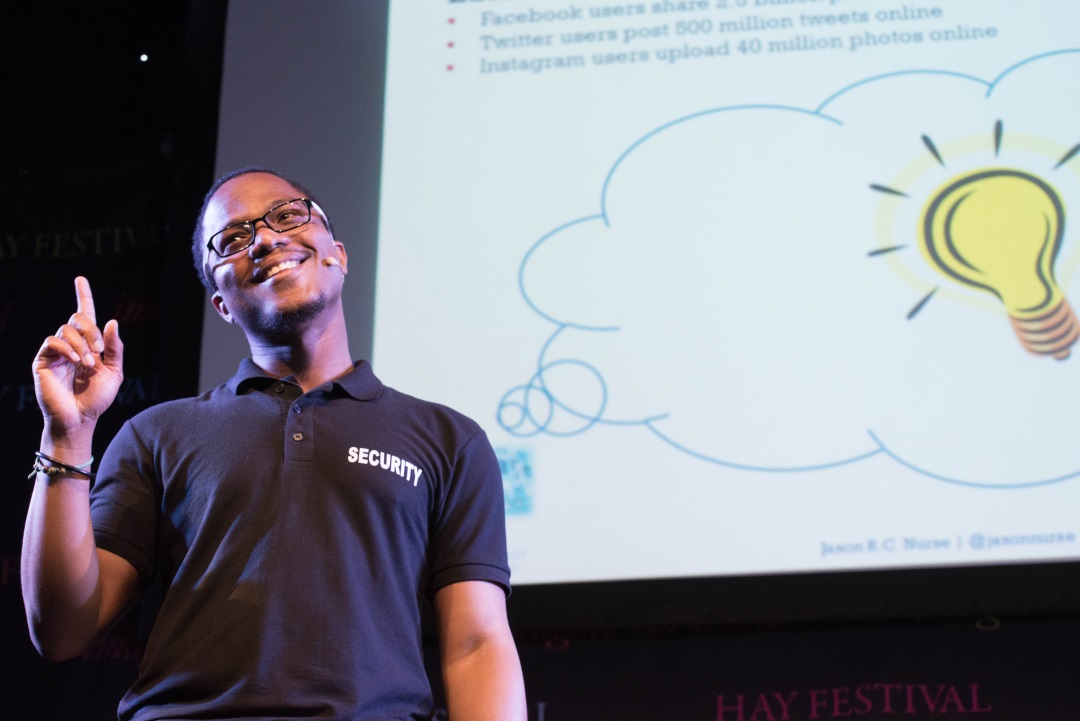© University of Kent - Contact | Feedback | Legal | FOI | Cookies
Outreaching Activities
We belive it is very important to bring cyber security awareness and education to schools so that we can help pupils better protect themselves and attract some of them to study cyber security or computing related subjects in their future university studies. We also consider close collaborations with parents, carers, school staff and relevant organisations important since they have more direct and frequent contacts with school pupils and young people. In 2020, we focus our public engagement activities on those for schools, and have plannd a number of key activities as follows.
- Student Ambassadors: We have appointed a number of PhD students studying at the Centre as outreaching Student Ambassadors, who have been helping the University and th Centre conduct cyber related outreaching activities.
- Cyber cecurity activity sheet for school pupils: We worked with Futurum Careers, a school-facing magazine for attracting teenages to study STEM subjects, to produce a cyber security awareness article and an interactive activity sheet that we will use with local schools to engage pupils, parents and school staff. The article and the activity sheet are released under the Creative Common License Attribution-NonCommercial 4.0 International (CC BY-NC 4.0) and we welcome all to use them for cyber security outreaching activities with schools. Please inform us via kirccs-public@kent.ac.uk if you use the material and find it useful.




Citation information: Shujun Li and Jason Nurse, "How to Beat the Cybercriminals and Stay Safe Online," Futurum Careers, Issue 4, pages 32-33, March 2020, DOI:10.33424/FUTURUM43.
- CyberFirst courses: Working with QA Ltd, the Centre will co-organise two NCSC-funded CyberFirst courses on campus at the University of Kent in 2020: a CyberFirst Girls Competition Development day on 17 October, and a CyberFirst Advanced Course from 10-15 August.
- Inspiring next-generation cyber experts: The Centre is actively working with schools and other organisations to promote cyber scurity as a future career for pupils who are interested in ICT. An example is Dr Jason Nurse's being featured in Fantastic Jobs and How to Get Them, a book published by Oxforod University Press as part of its famous Oxford Reading Tree TreeTops series (Kent news story).


Other Public Engagement Activities
The Centre is actively conducting other public engagement activities as well. These include but are not limited to the following:- Kent Cyber Security Forum/Festival (KCSF), a Kent-branded annual public egagement event, and other ad hoc public egagement events. See our events page for more information.
- Researchers of the Centre regularly conducts activities raising the general public's cyber security awareness. Some examples:
- 11 February 2020: Jason Nurse's top tips on staying safe online for Safer Internet Day
- 2018-present: Jason Nurse's cyber security awareneess articles on The Conversation, e.g., Working from home risks online security and privacy – how to stay protected published during the 2020 COVID-19 pandemic
- Researchers of the Centre regularly supports cyber security related public-facing events as invited speakers or panelists. Some examples:
- January 2020: Shujun Li's interview at FIC 2020 to talk about relationships between, AI, humans and cyber security
- October 2019: Jason Nurse's talk on "Online data and the pursuit of privacy" at New Scientist Live 2019
- May 2018: Jason Nurse's talk on cybercrime and psychology at the Pint of Science Festival
- February 2018: Carlos Perez-Delgado's talk at TEISS 2018 on quantum computing
- Researchers of the Centre regularly interacts with public media to express expert comments on cyber security issues. Some examples:
- May 2020: Shujun Li's interview with KMTV on the 2020 EasyJet data breach incident
- May 2019: Budi Arief's widely reported expert comments on a WhatsApp security flaw
- April 2019: Shujun Li's expert comments on banning Huawei from UK 5G network due to security concerns
- March 2019: Budi Arief's interview with Business Motoring on vulnerabilities in a number of car alarm systems